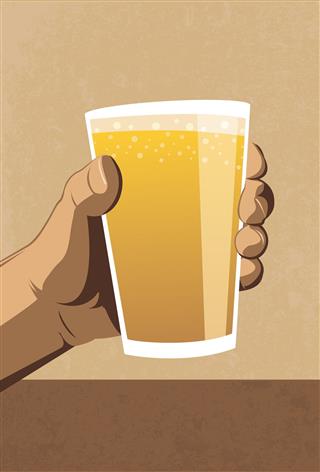
Nutritional deficiencies and neurologic disorders are the main causes of a twitching thumb. However, there can be some more possible ones as well.
Twitching of the thumb is actually the twitching of a muscle caused by the nerve impulse. The medical term for muscle twitching is fasciculation. The common symptoms of thumb twitching are tingling sensation and numbness. It is a normal phenomena and is mostly neglected. However, minor yet chronic thumb twitching may indicate nervous system disorders, in rare cases.
Causes
- Stress and Anxiety: They are the two most common causes of muscle twitching. Whenever you are stressed out, your thumb, leg or eye muscles are most likely to twitch.
- Dehydration: Low intake of water can give rise to twitching muscles. Hence, dehydration can also cause thumb twitching.
- Alcohol: As alcohol has adverse effects on the nerves, excessive consumption of alcohol can be one of the causes too.
- Sleep: Insufficient amount of sleep or insomnia can lead to twitching muscles.
- Drugs: The side effects of certain drugs, such as corticosteroids, diuretics, and estrogens, may include twitching of the thumb.
- Caffeine: Over-consumption of caffeine may result in muscle twitching over time.
- Myopathy: A muscular disease, called myopathy, involves weakening of muscles. If the thumb muscles are affected, thumb twitching may arise.
- Diet: Nutritional deficiencies like hypocalcaemia (deficiency of calcium) and hypomagnesemia (deficiency of magnesium) often result in electrolyte imbalance, which further leads to muscle cramps and spasms.
- Surgery: In carpal tunnel surgery, the median nerve is nicked in the wrist as it passes through the carpal tunnel. This is done to relieve pressure from the median nerve in patients suffering from carpal tunnel syndrome. It leads to thumb twitching.
- Muscle Contraction: Minor muscle contraction and weak muscles lead to muscle cramps in the thumb, which is one of the most common causes of thumb twitching.
- Nerves: Uncontrolled twitching of a muscle group in the thumb, that is serviced by a single motor nerve fiber or filament or a connective damaged nerve, generally results in thumb twitching. A damaged nerve, is a very rare cause. Causes like; fibromyalgia, muscular dystrophy and Lou Gehrig’s disease, are also very rare.
- CRPS: A disease called complex regional pain syndrome (CRPS), is characterized by intense burning or pain. It mostly occurs in the arms and legs. Uncontrollable thumb twitching may be one of its symptoms.
- Amyotrophic Lateral Sclerosis: Some motor neuron diseases like Amyotrophic lateral sclerosis (ALS), are marked by progressive degeneration of motor neurons. It may be one of the possible thumb twitching causes.
- Multiple sclerosis: Multiple sclerosis is a disease of the central nervous system. Its characteristic features are numbness and loss of muscle coordination. It can show thumb twitching as one of its symptoms.
- Parkinson’s: A genetic disease like Parkinson’s syndrome may cause thumb twitching. Some such diseases originate in the shoulder or rib area, and radiate to other body parts such as the thumb.
- Exercise: Over-exercising or working out in wrong ways generally cause muscle cramps, muscle spasms, muscle pain, and muscle fatigue. If the thumb gets affected, exercising can be taken as one of the thumb twitching causes.
Treatment
There are no home treatments for thumb twitching. It is very common and nothing to worry about. It will last only for a day or two. However, in very rare cases, if the twitching doesn’t seem to stop, visit a doctor. In case of any nerve damage, the twitching symptom should not be ignored. The correct underlying cause needs to be diagnosed and treated well. Visit a neurologist. He will conduct a number of tests for evaluation.
The diagnostic tests for the determination of causes of thumb twitching are numerous. The most commonly conducted ones are nerve conduction test, specialized urine test, spinal trap and MRI to rule out a brain tumor, spinal cord or disc disease, or injury. The tests may also include fasting blood sugar (FBS), that will work for vitamins and minerals and various other factors.
As a part of the treatment for thumb twitching, you may be referred to an anesthesiologist. They do excellent work on pain management. Usually, they do not treat a patient for pain, unless they know the exact reason behind it. Thus, make use of all such medical treatments to cure twitching of thumb as early as possible.
The twitching can be ignored for a day or two. However, if it does not stop after few days, consult your physician/neurologist.
Disclaimer: This HealthHearty article is for informative purposes only, and should not be used as a replacement for expert medical advice.








